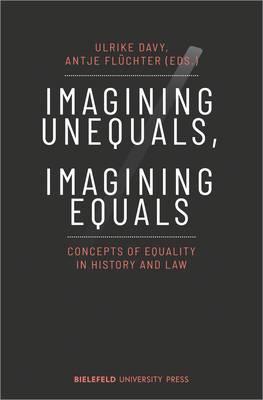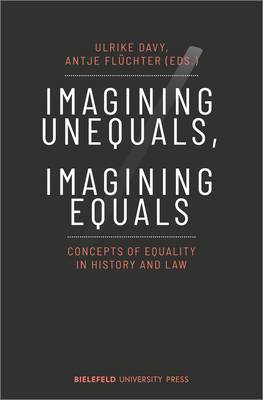
Bedankt voor het vertrouwen het afgelopen jaar! Om jou te bedanken bieden we GRATIS verzending (in België) aan op alles gedurende de hele maand januari.
- Afhalen na 1 uur in een winkel met voorraad
- In januari gratis thuislevering in België
- Ruim aanbod met 7 miljoen producten
Bedankt voor het vertrouwen het afgelopen jaar! Om jou te bedanken bieden we GRATIS verzending (in België) aan op alles gedurende de hele maand januari.
- Afhalen na 1 uur in een winkel met voorraad
- In januari gratis thuislevering in België
- Ruim aanbod met 7 miljoen producten
Zoeken
Imagining Unequals, Imagining Equals
Concepts of Equality in History and Law
€ 67,95
+ 135 punten
Omschrijving
Why did »equality« become prominent in European societies based on hierarchy during the Enlightenment? What does »equality« imply for societies, politics, or legal systems? The contributors to this volume draw on various historical case studies, from visionary practices in revolutionary France and the collection of data on the poor in 19th-century Germany, to claims raised under the minority regime of the League of Nations and the anti-discrimination politics of the UN and India. The dynamics of universalizing equality are contrasted with a concept asserting that equality must be limited to and by order. The contributions thus explore concepts of equality from the perspectives of history and law and show that practices of comparing were essential when it came to imagining others as equal, fighting discrimination, or scandalizing social inequalities.
Specificaties
Betrokkenen
- Uitgeverij:
Inhoud
- Aantal bladzijden:
- 258
- Taal:
- Engels
- Reeks:
Eigenschappen
- Productcode (EAN):
- 9783837658873
- Verschijningsdatum:
- 27/03/2022
- Uitvoering:
- Paperback
- Formaat:
- Trade paperback (VS)
- Afmetingen:
- 152 mm x 229 mm
- Gewicht:
- 349 g

Alleen bij Standaard Boekhandel
+ 135 punten op je klantenkaart van Standaard Boekhandel
Beoordelingen
We publiceren alleen reviews die voldoen aan de voorwaarden voor reviews. Bekijk onze voorwaarden voor reviews.








